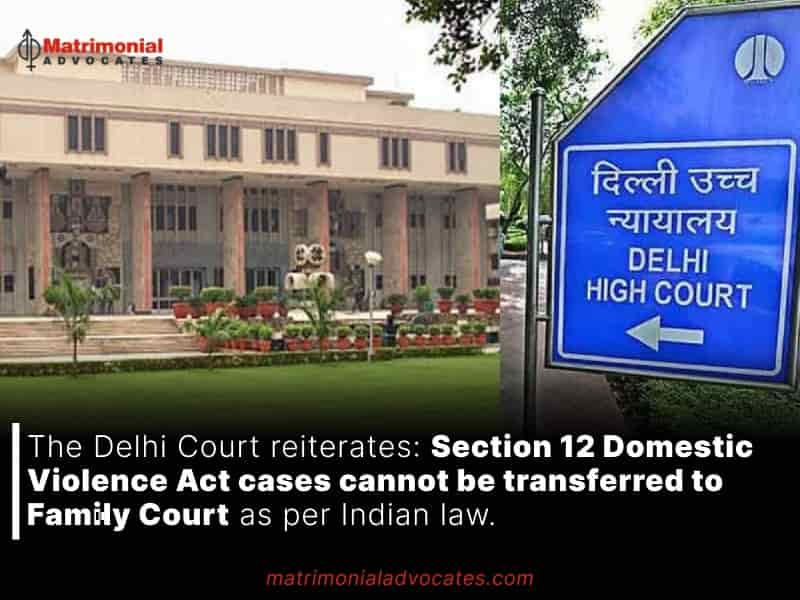
The Court affirms the exclusive jurisdiction of Magistrates in adjudicating applications under Section 12 of the Act, thereby ensuring clarity and coherence in the administration of justice.
The Saket Court in Delhi recently addressed a case involving a plea to transfer a matter under Section 12 of the Protection of Women from Domestic Violence Act from the Mahila Court in Saket to the Family Court, headed by the Principal Judge. This request stemmed from a divorce petition filed in the Family Court by the respondent. Judge Rajneesh Kumar Gupta rejected the transfer plea, affirming that the application under Section 12, currently under the Magistrate’s court’s purview, couldn’t be shifted to the Family Court. The decision rested on the understanding that while other courts could grant relief as delineated in Sections 18 to 22 of the Act, only the Magistrate holds the authority to adjudicate Section 12 matters.
The Court meticulously scrutinized legal provisions and precedent to clarify the jurisdictional boundaries of the Family Court and Civil Court concerning cases under the Domestic Violence Act. It underscored that although Family Courts and other courts possess the power to grant relief outlined in Sections 18 to 22, they lack jurisdiction over Section 12 applications.
Moreover, the Court stressed the disparity between concurrent jurisdiction and the specific authority vested in Magistrates to handle Domestic Violence Act matters. It clarified that requests under Section 12 couldn’t be transferred to a Family Court or Civil Court, as explicitly stipulated in legal provisions and judicial precedents.
Consequently, the Court decreed that the Section 12 application pending before the Magistrate’s court couldn’t be transferred to the Family Court. The transfer plea was dismissed, with the Court accentuating the importance of adhering to the jurisdictional boundaries delineated in the Domestic Violence Act.





